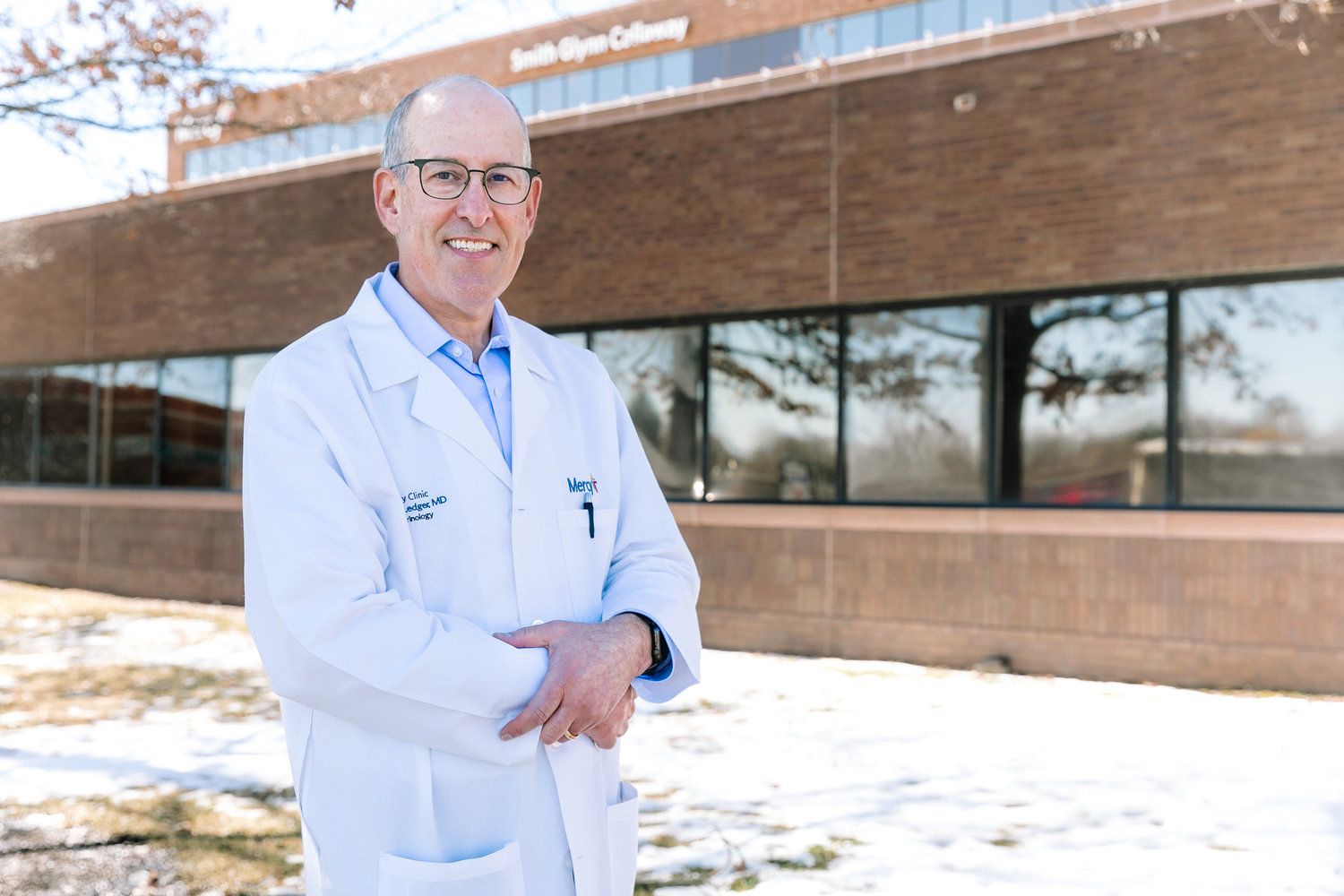YOUR BUSINESS AUTHORITY
Springfield, MO
YOUR BUSINESS AUTHORITY
Springfield, MO

You were named chief medical officer for Mercy on Jan. 15. How did that position come about, and what are the responsibilities?
I’ve been with Mercy for 26 years. My last seven years or so, I’ve been vice president of medical specialties and cancer. The role of the chief medical officer is to drive quality, safety and value throughout not just the hospital but all of Springfield Communities. I also will assist in credentialing the hospital bylaws and help support the medical staff in that area. I was approached to see if I would be interested in taking on this position.
We’ve reported July may be the month that herd immunity begins to set in for the coronavirus. What’s your take?
It really depends on how much vaccine is available. The (Centers for Disease Control and Prevention) and Dr. [Anthony] Fauci, they’re hoping by the end of this summer. I think President [Joe] Biden said he hopes by the end of the year. The challenge right now is there’s more demand than there is vaccine available. The main way we’re going to get to herd immunity is through vaccination.
As of Feb. 18, Mercy data show the health care system locally administered 21,080 shots – 12,061 of which are first doses and 9,019 of which are second doses. Do you foresee the shot becoming an annual immunization similar to the flu vaccine?
They’re so fluid. They change so often. There’s a lot of people who predict that we’ll have to get a booster shot every year. A little bit different than the flu vaccine, where this probably will be a booster shot depending on what types of mutations might happen. It looks like this is going to be endemic within society. It’s not going to go away.
There has been hesitation toward getting the vaccine, even among health care workers. What’s Mercy’s approach to encourage vaccination?
As you know, the vaccine was approved on emergency-use authorization. Certainly, you cannot mandate that somebody get it. You have to let science drive those decisions. If you look at places like the Mayo Clinic where they’re letting the science drive that decision making, 95% of their physicians have received a vaccine. Our numbers aren’t to that point, and there’s a lot of reasons. Some people felt that they should defer their vaccine and let somebody else have it. I think some people interpreted the science differently. My goal would be that we get to where we’re in those numbers, that 95% of our co-workers get vaccinated.
Beyond the coronavirus, what is trending in health care treatments or technology?
We want to promote managed wellness throughout the patient’s lifetime. We want to get to models of care delivery that instead of just treating illness periodically, that we’re really managing the patient prior to any acute illness, during that acute hospitalization and post.
To do that, we’re going to need to use all of our resources. We’re going to need to use Epic, which is our electronic health record; we’re going to need to utilize artificial intelligence and develop care teams and new care models that break that mold of what we’re doing now. Ultimately, our community deserves to have that high-quality, affordable care. We do that now, but it’s always that continued performance improvement.
Your specialty is endocrinology. Can you talk about the importance of that field?
In endocrinology, we take care of a lot of patients with diabetes. That’s a big focus of what we do. The incidence of diabetes has been increasing due to obesity and other social factors within society, and with that comes all those complications. We’re really looking at developing models of care … so that people don’t develop diabetes, but at the same time utilizing different technologies such as continuous glucose monitors. There’s newer medications so that people have less complications years later. That’s been a big push in endocrinology for the past couple years.
Dr. Gregory Ledger can be reached at 417-888-5660.
Utah-based gourmet cookie chain Crumbl Cookies opened its first Springfield shop; interior design business Branson Upstaging LLC relocated; and Lauren Ashley Dance Center LLC added a second location.
Updated: Systematic Savings Bank to be acquired in $14M deal
Warby Parker store planned in Springfield
Former CoxHealth colleagues starting communications firm
Former Wentzville superintendent to get $1M in contract buyout
STL construction firm buys KC company
NPR editor resigns after writing piece critical of organization